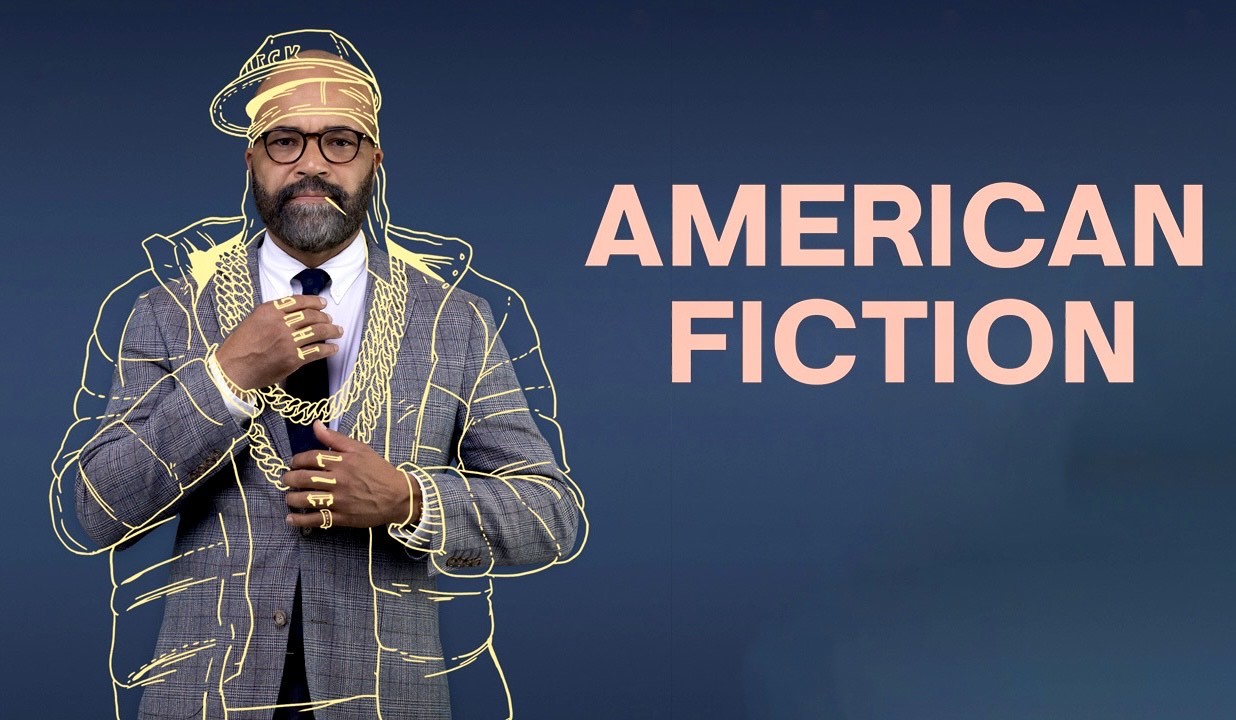
Based on Percival Everett's novel Erasure, Cord Jefferson's American Fiction is an attempt at a sweeping satire of today's publishing world and at the same time a character-driven family drama propelled by a marvelous screenplay. This is Jefferson's first time as a filmmaker, he is chiefly known to the American audience through his work as a television writer, and while he has all the right elements in his hands in order to deliver a memorable movie with a message to convey, the final result leaves something more to be desired. Apart from directing the film, Jefferson is also the man who loosely adapted Everett's book into a screenplay, retaining the wittiness and spiritedness of the dialogue unalloyed, a massive achievement in itself. The interplay between the main characters is the movie's forte along with the quality of the performances by both the protagonist, Jeffery Wright, and the supporting characters. American Fiction can be divided into two, uneven in terms of audience engagement, main plotlines that co-exist throughout the movie's runtime.
First of all, we have the publishing business plot thread. Thelonious -"Monk"- Ellison is a middle-aged fiction author and Professor of English who specializes in scholarly adaptations of Ancient Greek Tragedies, in other words, a lost cause in terms of commercial impact. Monk, the nickname is a reference to the late Jazz legend Thelonious Monk, is frustrated as he adamantly believes that his work is unpopular because he hadn't succumbed to the easy solution of the profit-making racial stereotyping that never ceases to attract new readers despite the hackneyed main themes and cliched characterization. In one of the opening scenes, Monk walks into a writing conference where one of the hottest names in the so-called "Black literature" is presenting her latest work. He stands still and listens to the over-worn omnipresent motifs that have become synonymous with African American literature during the previous few decades. More as a prank than an act of revenge, Monk decides to write the ultimate potboiler novel incorporating all the trademarks of the genre in order to make a point and awaken the dormant writing community. The title of the book is "My Pafology" with Monk assuming the non-existent identity of the author who, a cherry on the pie, is also a fugitive on the run from the authorities, the epitome of a ghetto-born-and-raised African American.
The second plot strand, which is the most effective dramatically, focuses on Monk's family and the strained relationships of the protagonist with his mother, brother, and sister. The Ellison family is facing financial hardships, and Monk has to rethink his priorities and battle the feelings of disconnection tormenting him. His brother, Clifford (Sterling K. Brown) is a rather lax, easygoing fella with a knack for synthetic opioids and intimate relationships with members of the same sex. Monk and Clifford's rapport is burdened with a -largely undisclosed- laborious history while their interactions constitute the primary source for the audience to draw emotions and profound contemplation that sticks to memory long after the ending credits roll.
American Fiction is supposed to tackle sizzling issues regarding the problem of accuracy in the representation of ethnic, racial, or religious groups of people and sets trite questions in a new way: Is it feasible for an author who doesn't want to touch the racial aspect to do so without eventually falling back to the subject they so desperately try to avoid. The satiric element which could play a key role in elevating the memorability and innovativeness of the movie cannot surpass the limitations of the story per se and it finally remains captive to the extravagance and hyperbole when it comes to the characters crowding the fictitious publishing universe. At times, they resemble caricatures, and their implausible reactions instead of generating laughter, minimize the seriousness of the discussion about the problem of the generic portrayal of African Americans both in literature and in onscreen media.
To conclude, American Fiction could be more than a meticulously crafted family dramedy if Jefferson handled the subject matter at hand with due attention. The movie lacks the boldness that would make it one of the most interesting movies of 2023 and that is what is left as an impression in the end. The great dialogue and the top-notch performances are dwarfed by the movie's essential defects. Shame.